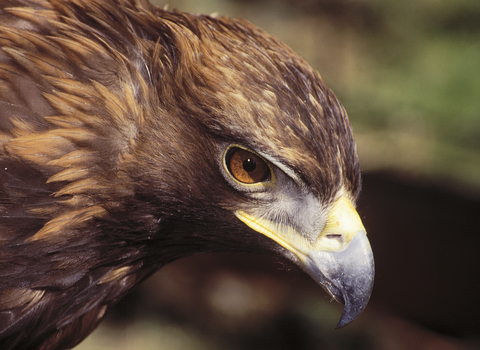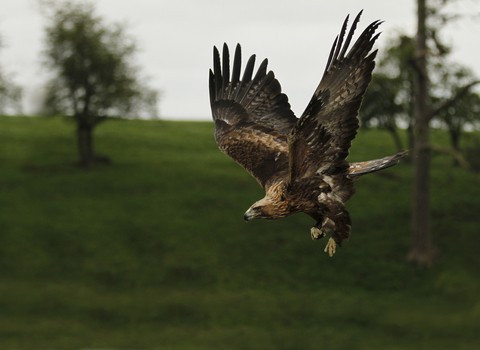
©Wildstock

©Jon Hawkins
Golden eagle
The enigmatic golden eagle disappeared from England and Wales in the 19th century due to severe persecution. Scottish birds suffered from the use of pesticides in the 20th century. Luckily, golden eagle numbers are soaring high today thanks to conservation efforts.
Scientific name
Aquila chrysaetosWhen to see
January to DecemberTop facts
Category
Stats
Length: 76-90cmWingspan: 2.2m
Weight: 3.7-5.3kg
Average lifespan: 23 years
Classified in the UK as Green under the Birds of Conservation Concern 5: the Red List for Birds (2021). Protected in the UK under the Wildlife and Countryside Act, 1981.
